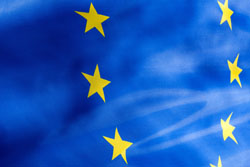The EU reaches out through multilateralism
The EU is an avid proponent of multilateralism, when multiple countries work together on pivotal issues such as security or the economic crisis. One important case of multilateralism is represented by cooperation between the EU and countries around common seas that border Europe, such as the Baltic, Black, Caspian and Mediterranean Seas. EU4SEAS is an EU-funded project that explored multilateralism in countries around these seas. As the economic crisis changes the face of the world, other multilateral organisations such as the International Monetary Fund (IMF) and the United Nations (UN) are playing an increasing role in global affairs. In parallel, as the attractiveness of the EU's single currency wanes due to the crisis, the bloc is rethinking its neighbourhood policy and its enlargement. Under this project it studied all these changing realities to advance sub-regional multilateralism on the EU's fringes with a view to producing better policies in order to engage its neighbours. To achieve its aims, project partners conducted several seminars on security issues, environment, maritime policy, energy and transport, as well as on the free movement of people, goods and capital. The endeavour involved 400 interviews and visits to 30 countries, which served as a basis for producing papers, policy briefs and valuable insights. Importantly, EU4SEAS found that the non-homogenous EU policies and strategies have often inadvertently weakened sub-regionalism; the tense dynamics with Russia and the Ukraine is one such example. Issues of tension in trade and energy also exist with north African nations, among others, pointing to a need for improving policies that further multilateralism in a healthy manner. EU4SEAS could have a profound impact on building constructive, prosperous relationships with its neighbours. It has successfully probed pivotal issues such as enlargement, Europeanisation and interregionalism to shed light on healthy sub-regional multilateralism. Through its seminars, publications and discussions, the project has reached out to all stakeholders including academia, civil society, the media and, of course, policymakers. This has laid the groundwork for enhanced debate on improving multilateral cooperation, contributing policy insights and recommendations that could change the way the EU interacts with its neighbours. From the global economic crisis and the Arab Spring to new energy pipelines and EU enlargement, policymakers will now be much better informed so as to foster improved multilateral ties. New, more inclusive sub-regional policies will mean more security, stability, trade and understanding than ever before.




